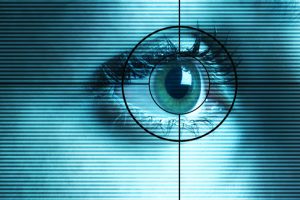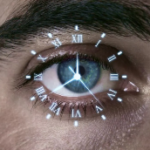Neuro-Ophthalmology
Neuro-Ophthalmology The eye and optic nerve are an extension of the brain. Injuries and neurological conditions can often cause problems with the eye and visual pathways in the brain. Injuries can be caused by trauma, inflammation, stroke, tumors, toxicities, and infection. Dr. Contractor is one of only 500 fellowship-trained neuro-ophthalmology specialists in the United States, and treats visual problems in patients with neurological conditions such as multiple sclerosis, strokes, facial nerve palsy, pseudotumor cerebri, and headaches.
About Neuro-Ophthalmology
Neuro-Ophthalmology focuses on visual problems that relate to the nervous system. These include loss of vision due to injuries of the brain or optic nerve, which transmits visual signals from the eye to the brain. Such injuries can be caused by trauma, inflammation, stroke, tumors, toxicities, and infection. We also see patients who have problems controlling the movement of their eyes.
Your neuro-ophthalmology exam will begin with a careful review of your problem and any neurological or medical problems that could be relevant. This is followed by an evaluation of vision, eye movement, color vision, and visual
For patients with multiple sclerosis (MS), it’s especially important to see a neuro-ophthalmologist annually for a test called Optical Coherence Tomography (OCT) to scan the layers of nerve fiber of retina to assess optic nerve damage. We can see how healthy these nerves are, potentially in advance to other symptoms. Neuro-ophthalmology conditions can cause permanent visual loss, or become life-threatening.
Our physicians have unique abilities to evaluate patients from the neurologic, ophthalmologic, and medical standpoints to diagnose and treat a wide variety of problems.
PREPARING FOR THE NEURO-OPHTHALMOLOGIC EVALUATION
- When preparing for an appointment make sure you do the following to help ensure a comprehensive evaluation can be performed.
- Request that your treating physicians send all relevant information to us prior to your appointment, including office notes, results of laboratory tests and reports of brain imagery including, CT and MRI scans.
- If you have had a brain CT or MRI scan performed, arrange to pick up the CD and bring them with you, or have the facility mail them to us in advance or your appointment, so we can personally review the images.
- You will have your pupils dilated during the visit. The eye drops last about 4 hours and will make things look bright and blurry up close. Have someone else drive you to the appointment and bring your sunglasses.
- Bring a complete list of medications with you, including the name and dosage of prescription and over-the-counter medications.
WHAT HAPPENS DURING A NEURO-OPHTHALMOLOGIC EXAM?
- The neuro-ophthalmologic evaluation is one of the most comprehensive examinations you will experience. It may take a few hours to complete.
- You will be asked to give an account of your current problem and relate your entire medical history, including previous hospitalizations, operations, serious illnesses, medical problems in your family members, and medication allergies.
- You will have a complete eye examination. This may include testing of your peripheral vision (visual field test).
- You may have a partial or complete neurologic exam to test your strength, sensation, and coordination.
- Your eye physician will review the records and scans from previous evaluations, if applicable.
- After the examination, our eye physician will discuss the diagnosis, the need for any additional testing and possible treatment.

